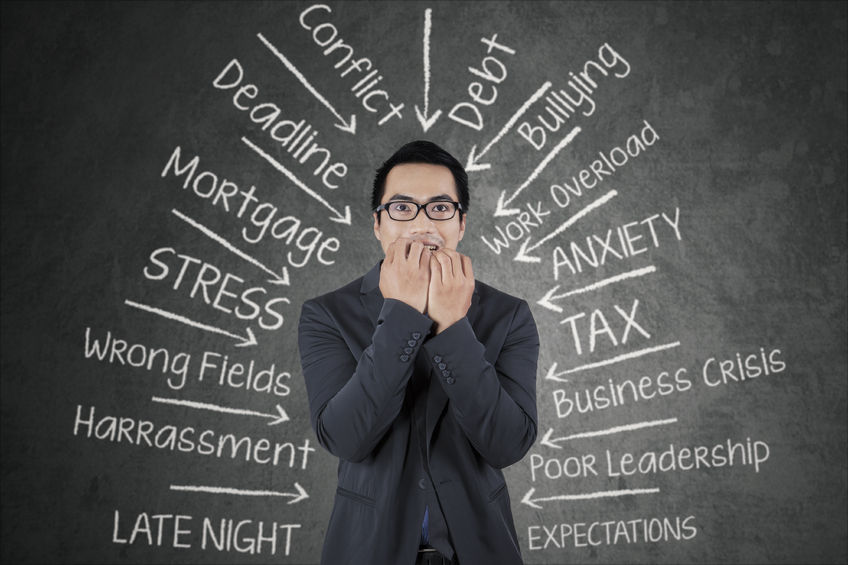
We have all heard those infuriating words “just calm down” before. Most people get upset by hearing this because they feel others are invalidating how they are feeling. When we say “I can’t calm down” we often really mean “there is something bad going on and I need to stay anxious until it is resolved.” This makes sense because fear and anxiety are produced by our survival system, which is designed to keep us alive, no matter what. At our cores, we believe that anxiety does what it was initially designed to do; keep us safe by getting us ready to react to immediate danger.
Does Anxiety Keep us Safe?
Our biggest challenge is that it is absolutely against our nature to turn off our alarm system because it is designed to keep us alive. As Aaron T. Beck, noted anxiety researcher said, “Evolution favors an anxious gene.” This means that in a world full of real life-and-death dangers, it is usually beneficial for a species to stay anxious and alert to threat. Unfortunately, this system is poorly suited to the modern world most of us live in. We do not respond to dangers such as suddenly encountering a bear, all that often. In nature, that kind of threat would activate our freeze-fight-flight system for a short time and then subside after the bear is gone. Unfortunately, the “wild bears” of today’s world are threats like war, poverty, injustice, ecological ruin, and relationship strife which exist ever-presently and and often do not resolve quickly.
Anxiety Harms Us
With all these valid reasons to worry, why SHOULD we try to reduce our anxiety? Maybe we should stay anxious all the time? The reasons for this are powerful, although not always immediately apparent. First, prolonged anxiety is deeply toxic to our bodies and brains. Prolonged anxiety causes chemical and physical changes within us which age us, put us at risk for a wide array of diseases, and lead to emotional problems. In addition, when our survival brain is turned on, our thinking and reasoning brain is turned off. Anyone who has fumbled their words in a job interview or made a poor decision when under stress has felt the impact of the deactivation of their higher functioning brain due to anxiety. It is truly ironic that a system designed to protect us from harm instead puts us at risk in moments that are critical to our modern lives.
What You Can Do
So what should we do? First off, we need to know and believe that our anxiety is not protecting us and that it will not help us to stay safe when it is chronic and when there is no immediate danger present. Only then can we convince ourselves to use a variety of tools to lower our anxiety so that we can think more clearly, act more effectively, and make better decisions about what to do. People do this in a variety of ways which include breathing exercises, thought stopping skills, and mindfulness techniques that can be learned from a therapist or self-taught from books, videos, or articles.
Now, when we notice we are anxious, we can invite ourselves to “calm down” knowing that our anxiety comes from a valid place, but that it is ultimately more harmful than helpful. We can then chose to learn and use skills to help ourselves approach the many challenges of our lives and in our world.
IntraSpectrum Counseling is Chicago’s leading psychotherapy practice dedicated to the LGBTQ+ community, and we strive to provide the highest quality mental health care for multicultural, kink, polyamorous, and intersectional issues. For anyone needing affirming and validating support in their healing, please click here or email us at help@intraspectrum-chicago.com.





 Today, July 26th, is National Disability Independence Day. This annual commemoration marks the day in 1990 when the Americans with Disabilities Act (ADA) was signed into law. The ADA enshrined several crucial civil rights protections for individuals with disabilities, but it still falls short of its intended goals after over 30 years on the books.
Today, July 26th, is National Disability Independence Day. This annual commemoration marks the day in 1990 when the Americans with Disabilities Act (ADA) was signed into law. The ADA enshrined several crucial civil rights protections for individuals with disabilities, but it still falls short of its intended goals after over 30 years on the books.